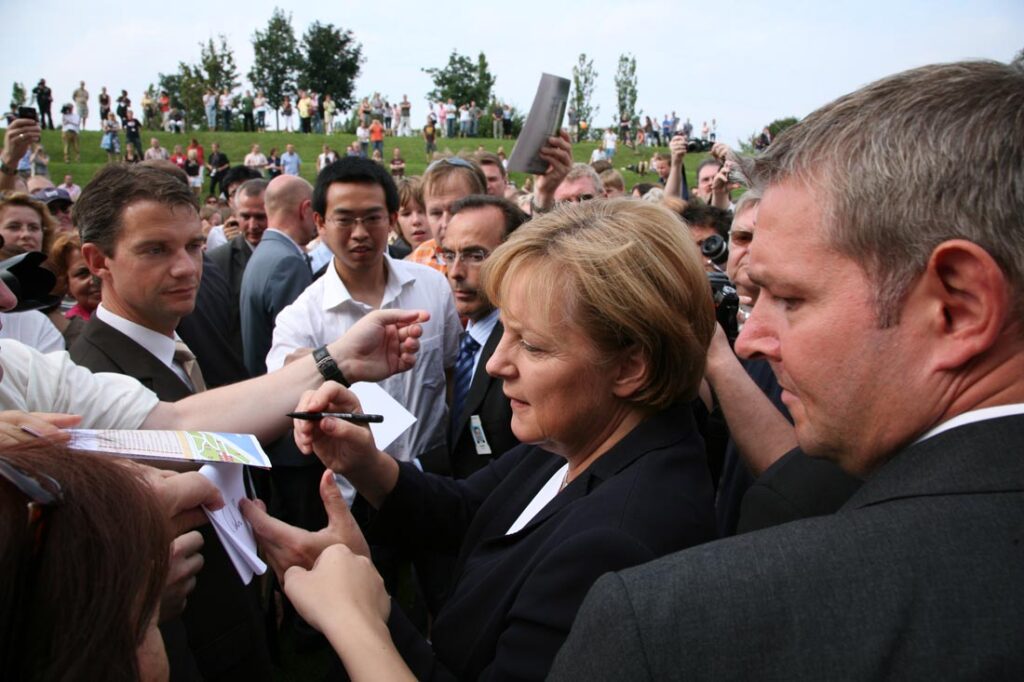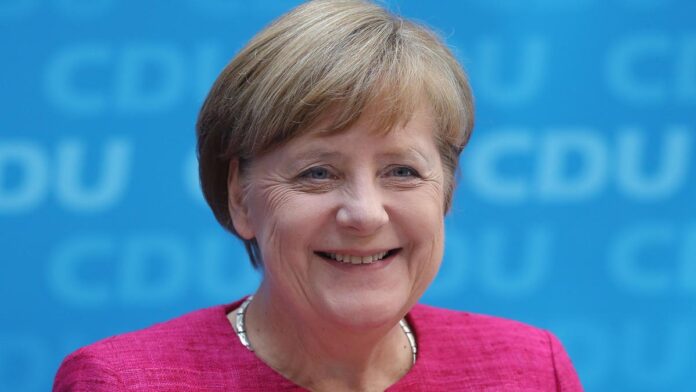In the landscape of global politics, one name stands out as a symbol of steady leadership, resilience, and unwavering commitment to public service—Angela Merkel. Born on July 17, 1954, in Hamburg, West Germany, Angela Dorothea Merkel emerged from humble beginnings to become the first female Chancellor of Germany and a dominant force in European politics.
Page Contents
Early Years and Academic Pursuits
Angela Merkel’s childhood was shaped by the post-World War II era, a period of reconstruction and division. Raised in the small town of Templin, Merkel’s father, a Lutheran pastor, and her mother, a teacher, instilled in her a sense of discipline, perseverance, and the importance of education. Merkel’s intellectual curiosity and aptitude for science led her to pursue a degree in physics at the Central Institute for Physical Chemistry of the Academy of Sciences in East Berlin.
Her academic journey was not without challenges, as she navigated the ideological currents of East Germany. However, Merkel’s commitment to her studies and her ability to adapt to the shifting political landscape were evident early on. Completing her doctorate in quantum chemistry in 1986, Merkel had already laid the groundwork for her future role as a pragmatic and analytical leader.
Read Also : Andrés Manuel López Obrador
The Fall of the Berlin Wall and Political Ascent
The winds of change swept through Germany in 1989, with the fall of the Berlin Wall symbolizing the end of the Cold War and the reunification of East and West Germany. Merkel’s entry into politics coincided with this historic moment. She joined the newly formed Democratic Awakening, a political movement that aimed to shape the future of a unified Germany.
As East Germany transitioned into a democratic state, Merkel quickly rose through the ranks. Her reputation as a level-headed and pragmatic politician earned her the admiration of her peers. In 1991, she became the Minister for Women and Youth in Chancellor Helmut Kohl’s government, marking the beginning of her ascent to the upper echelons of German politics.
Stepping into the Chancellorship
In 2005, Angela Merkel made history by becoming the first female Chancellor of Germany. As the leader of the Christian Democratic Union (CDU), Merkel’s election was not just a milestone for gender equality but also a testament to her political acumen and the trust she had garnered from the German people.
Facing economic challenges and a rapidly changing global landscape, Merkel’s leadership style became characterized by pragmatism, compromise, and a focus on consensus-building. Her measured approach resonated with many, both within Germany and on the international stage.
Financial Crisis and Eurozone Challenges
One of the defining moments of Merkel’s tenure was her response to the global financial crisis of 2008. As the Eurozone faced economic turmoil, Merkel played a central role in orchestrating a coordinated European response. Her commitment to fiscal discipline and her insistence on structural reforms became hallmarks of her leadership during these tumultuous times.
The Greek debt crisis, in particular, tested Merkel’s diplomatic skills and resolve. Balancing the interests of Germany and the broader European Union, she championed a series of bailout packages while advocating for stringent austerity measures. Merkel’s approach, often criticized for its perceived austerity, nonetheless reflected her commitment to preserving the stability and integrity of the Eurozone.

Refugee Crisis and Moral Leadership
In 2015, the refugee crisis emerged as a formidable challenge for Merkel’s leadership. Faced with an influx of refugees fleeing conflict and persecution in the Middle East and North Africa, Merkel made a bold decision to open Germany’s borders. Her compassionate stance, encapsulated by the phrase “Wir schaffen das” (We can do it), drew both admiration and criticism.
Merkel’s decision reflected not only her commitment to humanitarian values but also her belief in Germany’s ability to absorb and integrate those in need. The move, however, ignited debates about immigration policies and fueled the rise of populist movements across Europe. Merkel’s resilience in the face of these challenges underscored her willingness to make difficult decisions based on moral imperatives rather than political expediency.
Leadership on the Global Stage
Merkel’s influence extended beyond the borders of Germany, making her a key player on the global stage. Her relationship with the United States, particularly with Presidents George W. Bush, Barack Obama, and later Donald Trump, showcased her ability to navigate complex international dynamics.
As a staunch advocate for multilateralism, Merkel played a crucial role in addressing issues such as climate change, international security, and the ongoing conflict in Ukraine. Her commitment to diplomacy and dialogue earned her the reputation of a stateswoman with a deep understanding of the interconnectedness of global challenges.
Read Also : The Enduring Legacy of Queen Elizabeth II
Legacy and Conclusion
As Angela Merkel prepared to step down as Chancellor in 2021, she left behind a legacy marked by stability, pragmatism, and a commitment to European unity. Her 16-year tenure was a testament to the evolving role of women in politics and a reflection of her ability to navigate complex challenges with resilience and grace.
Merkel’s impact on Germany and the world extended far beyond her gender or her political affiliations. She became a symbol of stability in an era marked by uncertainty, a leader who approached governance with a scientist’s precision and a humanitarian’s compassion. Angela Merkel’s journey from a small town in East Germany to the pinnacle of global politics is a story of resilience, leadership, and the enduring power of principled decision-making.


